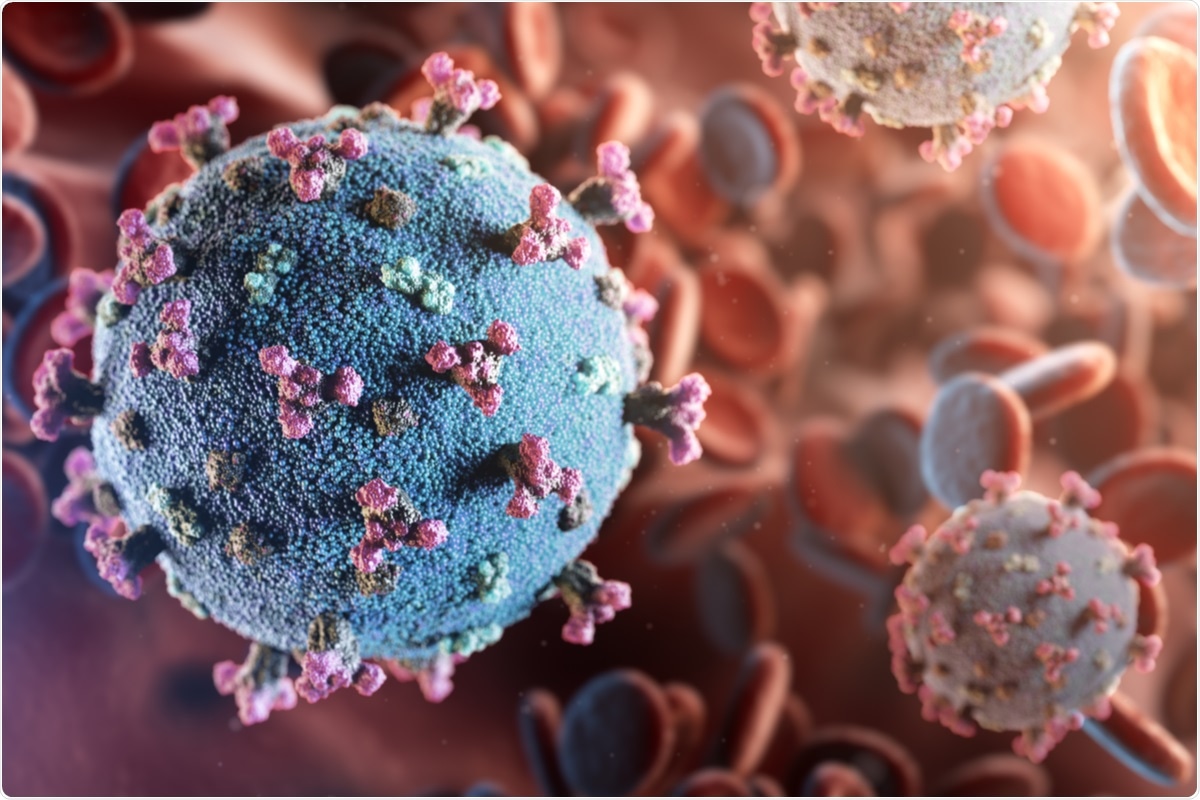The severe acute respiratory syndrome coronavirus 2 (SARS-CoV-2), has killed millions from coronavirus disease 19 (COVID-19). Retrospective studies indicate that individuals infected with SARS-CoV-2 and exhibiting symptoms are infectious for approximately nine days. However, the presence of viral RNA can linger beyond the end of the infectious period.
 Study: Viral load and infectivity of SARS-CoV-2 in paired respiratory and oral specimens from symptomatic, asymptomatic or post-symptomatic individuals. Image Credit: creativeneko/ Shutterstock
Study: Viral load and infectivity of SARS-CoV-2 in paired respiratory and oral specimens from symptomatic, asymptomatic or post-symptomatic individuals. Image Credit: creativeneko/ Shutterstock
The virus sheds itself from the infected host before symptoms appear. Hence, it has been estimated that ~44% of the infections occur while the index case is pre-symptomatic. Despite the availability of vaccines, the virus continues to cause a toll on human health. This is partly due to breakthrough infections caused by variants of concern (VoC) and partly due to public negligence and doubt over vaccines and their efficacy. Thus, there is always a strong demand for rapid, sensitive, and efficient diagnostic tests. A refined understanding of the SARS-CoV-2 infectious period is also needed for intervention to limit transmission.
To understand the viral load in different sections of infected individuals, their respective shedding patterns, and sensitivity of the SARS-CoV-2 assays, researchers published a study in the preprint server medRxiv*. They compared the clinical performance of three diagnostic assays (Rheonix COVID-19 MDx assay, EZ-SARS-CoV-2 real-time RT-PCR assay, and the TaqPath COVID-19 Combo kit assay) and determined the diagnostic sensitivity of paired respiratory (nasopharyngeal and anterior nares swabs) and oral samples (saliva and sublingual swabs) collected from symptomatic, asymptomatic, or post-symptomatic individuals.
About the study
Researchers collected samples from 77 individuals, of which 75 were diagnosed with COVID-19 and classified as symptomatic (n=29), asymptomatic (n=31), or post-symptomatic (n=15). Specimens were collected at one time point from each individual, between 1 to 23 days post the initial COVID-19 diagnosis, and included self-collected saliva (S), or sublingual (SL) swab, and bilateral anterior nares (AN) swab, followed by healthcare provider collecting nasopharyngeal (NP) swabs.
Sixty-three specimen sets were tested using three assay platforms, Rheonix COVID-19 MDx assay, EZ-SARS-CoV-2 real-time RT-PCR assay, and the TaqPath COVID-19 Combo kit assay. The diagnostic sensitivity of each assay/platform and specimen type was determined.
Of the 63 specimen sets, SARS-CoV-2 was detected in 62 NP specimens, 52 AN specimens, 59 saliva specimens, and 31 SL specimens by at least one platform. Infectious SARS-CoV-2 was isolated from 21 NP, 13 AN, 12 salivae, and one SL specimen out of 50 specimen sets. SARS-CoV-2 isolation was most successful up to 5 days after initial COVID-19 diagnosis using NP specimens from symptomatic patients (16 of 24 positives, 66.67%), followed by specimens from asymptomatic patients (5 of 17 positives, 29.41%), while it was not very successful with specimens from post-symptomatic patients.
Understandably, the sensitivity of the assays was lower in asymptomatic patients than in symptomatic patients, even though they were collected within the same time frame of 1 to 5 days after the initial diagnostic test. In contrast, those of post-symptomatic patients were lower than both symptomatic and asymptomatic patients.
SARS-CoV-2 detection was highest using NP specimens across platforms at 87.30%, followed by 82.54% of AN specimens and 74.60% of saliva specimens. SARS-CoV-2 detection decreased to 61.9% in SL specimens across platforms.
The simplicity of self-collected saliva and AN specimens mitigated the lower sensitivity relative of these two samples to NP specimens. Therefore, saliva and AN specimens could be considered acceptable alternatives for symptomatic SARS-CoV-2 diagnostic testing or surveillance with an increased sampling frequency of asymptomatic individuals.
Collectively, this study identified the EZ-SARS-CoV-2 assay on the ABI 7500 platform as the most sensitive SARS-CoV-2 test across patients segregated by symptomology and across specimen types. The Rheonix system also demonstrated high diagnostic sensitivity on NP, AN, and saliva specimens. Although NP specimens provided the highest sensitivity individually, 86-90% of paired AN and saliva specimens were detected, proving their worth as substitute specimens for detection.
Implications
As the number of COVID-19 cases, especially breakthrough infections, continues to rise, it becomes increasingly important to have rapid and sensitive assays to detect the disease from specimens. With nasopharyngeal swabbing needing a certain level of skillset, alternating samples with near-similar results can solve the increasing testing demand in the present time.
As AN and saliva specimens can be self-collected with minimal PPE, materials, and assistance, they offer alternatives to NP specimens. The robust detection of SARS-CoV-2 from AN and saliva specimens by the EZ-SARS-CoV-2 assay supports the use of either specimen in a surveillance program of asymptomatic individuals. This will be immensely helpful in curbing the number of cases by breaking the chain sooner.
*Important notice
medRxiv publishes preliminary scientific reports that are not peer-reviewed and, therefore, should not be regarded as conclusive, guide clinical practice/health-related behavior, or treated as established information.
-
Tallmadge RL, Laverack MA, Cronk B, et al. Viral load and infectivity of SARS-CoV-2 in paired respiratory and oral specimens from symptomatic, asymptomatic or post-symptomatic individuals. medRxiv. doi: https://doi.org/10.1101/2021.11.13.21266305 https://www.medrxiv.org/content/10.1101/2021.11.13.21266305v1
Posted in: Medical Science News | Medical Research News | Disease/Infection News
Tags: Assay, Coronavirus, Coronavirus Disease COVID-19, Diagnostic, Efficacy, Frequency, Healthcare, Nasopharyngeal, PPE, Respiratory, RNA, SARS, SARS-CoV-2, Severe Acute Respiratory, Severe Acute Respiratory Syndrome, Syndrome, Virus

Written by
Sreetama Dutt
Sreetama Dutt has completed her B.Tech. in Biotechnology from SRM University in Chennai, India and holds an M.Sc. in Medical Microbiology from the University of Manchester, UK. Initially decided upon building her career in laboratory-based research, medical writing and communications happened to catch her when she least expected it. Of course, nothing is a coincidence.
Source: Read Full Article
